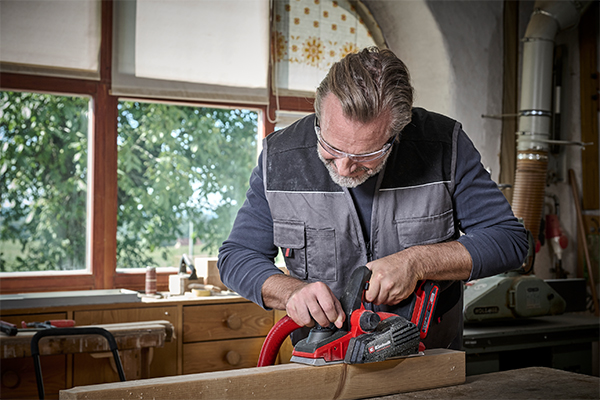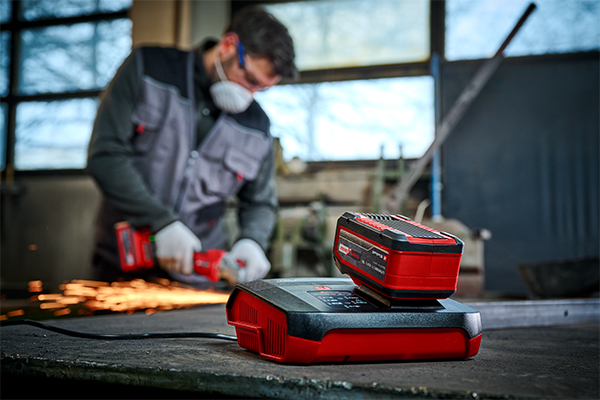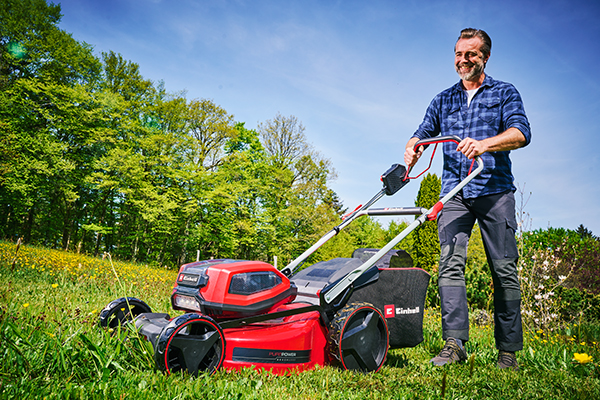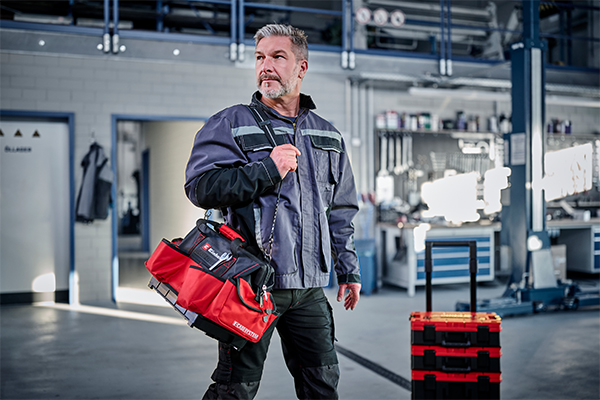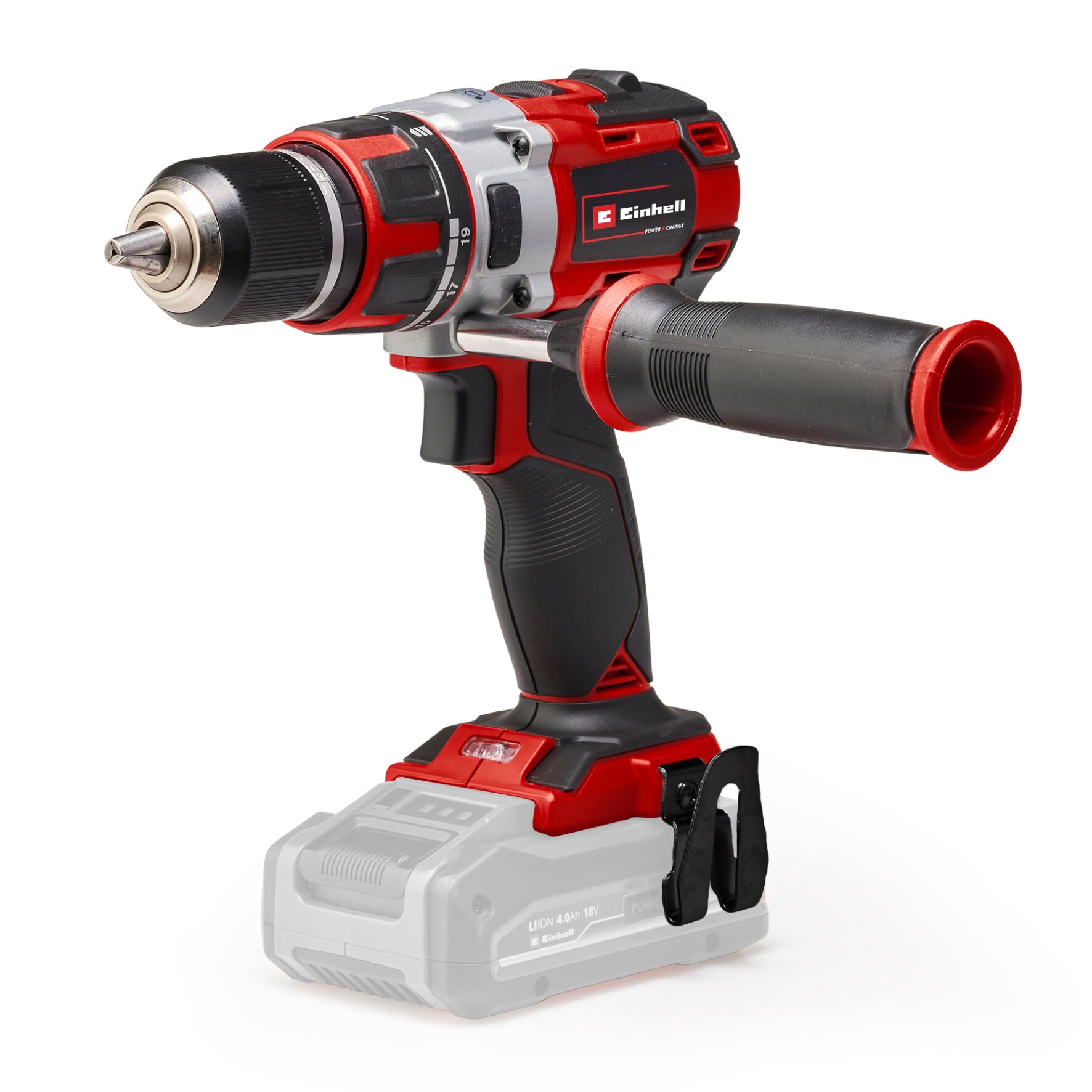Comparison of Cordless Screwdriver and (Impact-) Drill
Behind the inconspicuous term cordless screwdriver, various devices are often summarized prematurely: But is it now a cordless screwdriver, a drill or an impact drill? What's what? What are their applications? And which one do you need?
Here you get an overview of the different devices. Furthermore, we answer the following questions: What is a torque? How does a torque limit work? And which battery is the right one for cordless screwdriver and Co.?
Cordless Screwdriver, Drill or Impact Drill? What is what?
The Cordless Screwdriver
As the name suggests, the "real" cordless screwdriver is purely a device for screwing. As a rule, cordless screwdrivers therefore have no drill chuck and only one gear. This is also quite sufficient since a pure cordless screwdriver is usually used only in smaller applications, e.g. in the assembly of furniture, where he replaces the classic screwdriver. For this purpose, the cordless screwdriver is ideal: it is small, light, handy and can therefore be used in the cramped space of a drawer to be mounted.

The Drill or Cordless Drill
Again, the name provides information about the functions: the (cordless) drill combines drilling and screwing in one device and is thus probably the most widely used tool of a DIY enthusiast. Nevertheless, it is still used in everyday life under the term "cordless screwdriver". In contrast to the pure cordless screwdriver, however, the cordless drill has a drill chuck and two gears to distinguish between drilling and screwdriving. Which gear is used for what and why will be explained again in detail below.
In addition to the cordless screwdriver, such a device can in many cases also replace the conventional drilling machine (without impact!). The drilling machine is a wired device created to drill in a variety of materials. A cordless drill is more flexible and easier to use thanks to battery operation, but often has less power. Here it is helpful to compare the watt specifications of the devices. For normal home use, so for example for drilling in wood and metal, the cordless drill is usually completely sufficient. For harder materials, e.g. in order to mount a lamp on the reinforced concrete ceiling, however, it is necessary to reach for the impact drill or the hammer drill.

The Cordless Impact Drill
The cordless impact drill is the all-rounder in the workshop: in addition to the two functions of screwing and drilling of the cordless drill, the impact drill has an adjustable impact function when drilling. Here, the drill is placed in addition to the drilling movement with a mechanical percussion in a vibratory motion. This makes it suitable for drilling in concrete and masonry with the right accessories. When the impact function is deactivated, it can be used like a normal drill. Since the weight and handling of the impact drill does not differ much from the simple drill, many do-it-yourselfers prefer the rather cumbersome impact drilling machine.
The impact function in a cordless impact drill is axially aligned. This means the force is directed forward to be able to penetrate with a corresponding drill in harder materials. For example, to attract a nut requires a radial direction impact force (force action along the radius), like a cordless impact driver has.
If you want to drill mainly in stone and concrete and possibly also want to do chisel work, then you should use the hammer drill. We have dedicated the difference between hammer drill and impact drilling machine an own contribution.

What is a torque? How does a torque limit work?


The Torque
The Torque is a physical measure that describes the rotational effect of a force on a body. The more torque acting on a body (in our case, for example, a screw), the higher this body is inclined to turn. The unit of torque is Newton meters (Nm). Cordless screwdriver (here I include in the following explanations also drill and impact drill) with a higher torque have accordingly more power.
The Torque Limit
Sometimes, however, the power has to be limited: The torque limit or shutdown is a handy feature of modern cordless screwdrivers, which limits the power of the device in filigree screwing in soft materials. When screwing in wood, for example, it can happen quickly that a screw is screwed in too deep. In the worst case, the screw head can split the wood even in half. With a torque limit, the slip clutch engages and prevents more force being exerted on the screw as soon as the preset torque value is exceeded. If I want to put a screw flush with the wood, I start with little torque and then increase it until the desired result is achieved. Simply turn the slewing ring all the way down and turn it up piece by piece until you're where you want to go. This is not necessary for drilling. Here I turn to the drill function (the drill shown on the slewing ring). Nevertheless, one must also exercise caution when drilling: here, however, the speed must be adapted to the material. With the switch, the speed can be dosed. In addition to the material, especially the diameter of the drill plays a decisive role. As a rule of thumb, the higher the diameter, the lower the speed.
Which Gear for which Application?
Usually the common cordless screwdrivers have two gears. A slower (1) and a faster (2) gear. While the faster gear allows quicker work progress, the slower 1st gear delivers more power. Larger screws or screws with a higher diameter are already a challenge for the second gear. In 1st gear, the screwdriver screws at a lower speed and can thus exert a higher torque, ie more force, on the screw. For comparison: When the car should start driving you finally switch in the first gear. In addition, at lower speed, you have more control over the material you are using and can avoid twisting or wearing the head of the screw. The second gear is mainly used for drilling. Here there is less resistance, ie less power is needed and you can work at a higher (faster) speed.
Impact drills have a third function: Impact drilling is activated when drilling in stone or concrete.
How to Change a Drill Chuck Without Spindle Lock
At the beginning, the battery should be removed absolutely. Thereafter, the drill chuck of the machine may be loosened immediately. You should take care, whether the drill chuck is secured to the machine with a safety screw. There are two different types of screws, the Phillips screw and the slotted screw. Therefore, it is important to try different screwdriver sizes first to avoid wearing out the screw. If there is no screw, the drill chuck can be removed by simply turning it to the right.
After the screw has been successfully removed, take a hex key to help (take the largest possible size). Then insert the hex key into the drill chuck and tighten the drill chuck clockwise. When this is done, you can loosen the drill chuck with short, powerful strokes on the key. Please note here that this must be done counterclockwise. Now you can easily turn off the old drill chuck counterclockwise and replace it with a new one.
This is turned clockwise on the spindle. Here you should pay attention that the machine absorbs each drill chuck, but sometimes the force is not sufficient for the respective (thick) screwdrivers. The last step is to clamp the hex key into the drill chuck as before and firmly rotate the drill chuck onto the spindle. Now only fix the original locking screw with a screwdriver counterclockwise. If you want less time or effort when disassembling the drill chuck, you should get a cordless impact drill with spindle lock because you can remove the drill chuck by a few hand movements.
What does Brushed or Brushless mean?
In devices with conventional electric motors with installed carbon brushes, these are subject to normal wear and must be replaced after a certain time. In contrast, cordless tools with brushless motors have minimal frictional losses (bearings) and thus do not generate involuntary pauses due to overheated motors. Furthermore, no maintenance of the carbon brushes is required, which increases the life of the tools. In addition, there is an increase in performance and an energy-saving mode of operation (high efficiency), which results in extended battery life with one battery charge.


Which battery to use?
With battery platforms, such as the Power X-Change platform, all batteries fit all devices. However, there are batteries with different power and running time, which have their advantages and disadvantages depending on the application. The choice of the appropriate battery is therefore, as in the choice of device, according to the planned project:
For smaller jobs, such as those usually incurred with a cordless screwdriver, the "small" batteries between 1.5 Ah and 2.6 Ah are sufficient. Due to their lighter construction they are more comfortable to handle, have a very short loading time and are usually much cheaper to buy. These single-row (narrow) batteries are also ideal for most work with the drill.
If it sometimes takes longer: For the persistent or more intensive work, however, are the "larger" batteries, in Power X-Change the batteries between 3.0 Ah and 5.2 Ah, well suited. These not only have a longer battery life (Ah), but also more power (watts). Due to the higher weight, however, one's arm can quickly become heavy, especially when working overhead.
Quote: For my part, I have chosen the 3.0 Ah battery as my favorite because the charging time is manageable and the performance, as well as the durability in operation is great.
Also for other cordless tools, the battery should be adapted to the device: For the circular saw, for example, I have opted for the 5.2 Ah battery, since I need a lot of power here and the weight must not be considered. For the angle grinder and the jig saw I use the 3.0 Ah battery and the 5.2 Ah battery.

At a Glance: Cordless Screwdriver, Drill and Impact Drill in Comparison
| Cordless Screwdriver | Drill | Impact Drill | |
|---|---|---|---|
| Advantages | mobile, without cable | good handling due to lightweight, compact construction | wide range of functions |
| very low dead weight | wide speed range | drilling in stone/concrete with impact | |
| compact construction, cheap | screwing and drilling work | drilling in metal and wood without impact | |
| Disadvantages | limited applications | no impact function | partly a bit higher weight |
| no drilling function | no drilling in masonry/concrete | ||
| only for small screw-driving |

